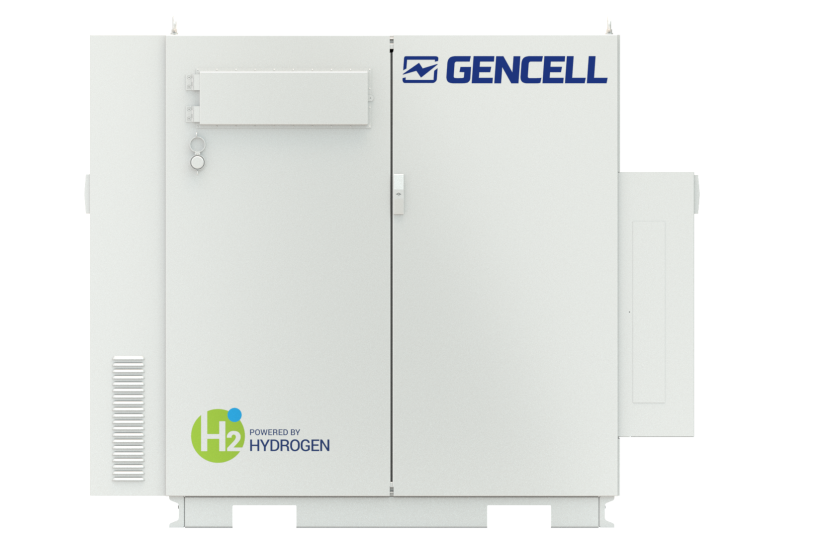If I handed you a glass of water and told you this is the stuff that is going to fuel our cars in 10 years, you would call me a fool. You would be right, because I have neither the proper equipment nor the cognitive capacity to rearrange the atoms in water into a source of electricity. Israeli start-ups do, though.
The science behind the tech
One such company, GenCell, is feeling so good about their pseudo-alchemical fuel that they soon plan to install a hydrogen-driven power supply at Hillel Yaffe Medical Center in Hadera. This uninterruptible power supply (UPS) will act as a backup generator for the hospital instead of its previous solution: inconsistent and polluting diesel generators, which have become something of a faux pas in light of the planet’s likely heatstroke.
“While we are proud of the significant environmental and power resilience achievements that Hillel Yaffe Medical Center has already reached using fuel-cell backup technology, we look forward to seeing the hospital realize the enormous potential value we expect them to gain during the next phase of the project,” said Gil Shavit, GenCell’s co-founder and chief business development officer.
The present scope of the installation is limited to three units, which will be used to back up the cardiac catheterization systems. If the UPS system works well, Hillel Yaffe is planning on installing additional units to back up more of their critical medical equipment.

“As grid-related power failures continue to expose hospitals to financial risk and reputational damage, it has never been more important to build resilience,” said Cas Rosenberg, who represents project collaborator ABB’s power-protection business development.
“Moving to a GenCell hydrogen-powered backup solution, the Hillel Yaffe Medical Center now has a reliable power supply 24/7, which will keep patients safe, decarbonize its operations and reduce costs to operate,” he said.
This landmark project signifies a crucial step forward, as medical facilities and other public sectors contemplate hydrogen as a future fuel source.
Cas Rosenberg
“Moving to a GenCell hydrogen-powered backup solution, the Hillel Yaffe Medical Center now has a reliable power supply 24/7 which will keep patients safe, decarbonize its operations and reduce costs to operate,” he said.
Israel is among the first countries in the world to stage the movement of hydrogen fuel cells on the country's roads and the cooperation between these companies positions Israel as one of the most advanced countries in the world.
Yaniv Shirazi, CEO of Colmobil
"An important milestone on a global scale"
Indeed, hydrogen is catching on. In recent years, the Israeli energy innovation sector has gradually turned its gaze to hydrogen fuel due to its potential as a zero-carbon renewable energy. Earlier this year, an agreement between car importer Colmobil and Israeli oil and gas companies Bazan and Sonol was signed that would herald the import of hydrogen-fueled trucks into Israel alongside the construction of hydrogen refueling stations.
“This is an important milestone on a global scale,” Colmobil CEO Yaniv Shirazi said. “Israel is among the first countries in the world to stage the movement of hydrogen fuel cells on the country’s roads, and the cooperation between these companies positions Israel as one of the most advanced countries in the world.”
Israel’s hydrogen power potential is so high that it is getting attention from other countries. During an interview in April, Romanian Energy Minister Virgil Popescu told The Jerusalem Post there were discussions going on regarding Romania’s use of Israeli hydrogen technology.
“I think that’s a huge opportunity for cooperation between [Israeli and Romanian] companies,” he said. “Both countries working together can make a lot of progress in the field of hydrogen, which we see as the fuel of the future.”
It is worth mentioning that hydrogen fuel is only a zero-carbon fuel source if the source material that it is extracted from is zero-carbon. If the fuel used to produce the hydrogen is a pollutant, then the carbon footprint of the original source is passed down to the hydrogen.
While GenCell is a big proponent of so-called “green hydrogen,” which is produced from water and creates no carbon emissions, the choice of the fuel that goes into their system ultimately belongs to the owners.
According to Shelli Zargary, GenCell’s marketing strategy and content manager, the hospital is planning to keep things as green as possible.
“In the first phase, we’re using medical-grade hydrogen in relatively small amounts,” she said. “They don’t need more because it’s a backup.”
In the second phase, the plan is to produce solar energy via panels installed in their parking lots, which can be used to produce hydrogen fuel from water via electrolysis. That process extracts hydrogen from water with none of the environment-strangling byproducts.
If this project and others like it go well, it could mean big progress for hydrogen as a primary renewable energy – perhaps even allowing fossil fuels to take some well-deserved and much-needed time off.
